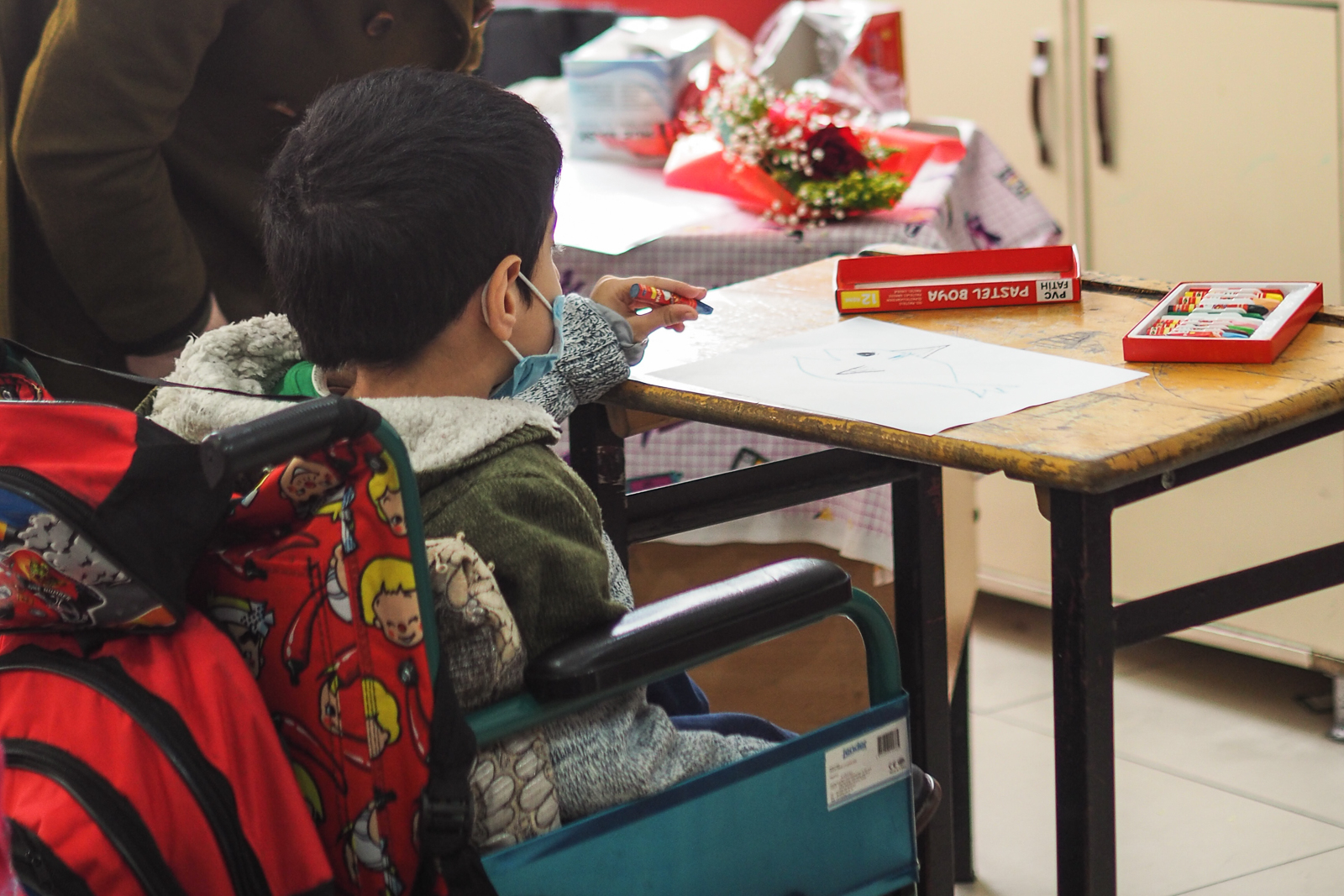
“Children with disabilities must be enrolled in an inclusive environment where they can fully maximise their potential”
Barriers to education, Global Youth Ambassadors, Right to education
To mark International Day of Persons with Disabilities on December 3, a Global Youth Ambassador tells of the need to provide quality education for everyone.
According to the World Report on Disability, worldwide approximately one billion people live with disability. 80% of them live in developing countries like the Philippines – particularly in rural areas where education, employment and health services are often not readily accessible, not to mention the discrimination they face.
I was born with mild cerebral palsy in one of the poorest provinces of the Philippines. At the age of four, my mother enrolled me in a regular kindergarten despite my disability.
That episode of my life made me think that there was nothing wrong with me – nothing different, nothing special compared to other children. I only realised that I have a disability when I started going to grade school, where I have faced bullying and discrimination from other children.
But since I was first introduced into an inclusive educational setting as a young child, I have learned that children with disabilities also have the right to an education and that they must be enrolled in an inclusive environment where they can fully maximise their potential together with other children without disabilities.
Based on the Global Campaign for Education report, Children with Disabilities (CWDs) in most low- and middle-income countries are more likely to be out of school than any other group of children. On top of that, CWDs have very low rates of initial enrolment.

Even if they do attend school, CWDs are more likely to drop out and leave school early. The reasons CWDs are denied this basic right include lack of proper training for the teachers, inaccessible schools and prejudice from the people around them.
The United Nations Convention on the Rights of Persons with Disabilities – adopted in 2006 and now ratified by over 175 countries – guarantees, emphasises and ensures that persons of all ages with disabilities are entitled to the same human rights. They include access to education, healthcare, employment, the right to vote, the right to a family life and to participate fully in the societies in which they live.
However, the specific needs and concerns of youths with disabilities, as a distinct and vulnerable group, are presumed but rarely explicitly mentioned. Historically, people with disabilities have been overlooked in development policy.
To ensure the full, effective and equitable participation of children with disabilities at all levels of decision-making, we need an inclusive approach.
Sustainable Development Goal 4, which refers to quality education, is to
“ensure inclusive and equitable quality education and promote lifelong learning opportunities for all.” A lot of disability advocates were happy that people with disabilities were mentioned explicitly on this global goal.
In order to achieve equality and to localise this goal, national policies for including children with disabilities in education should be developed with specific time frames for implementation and clear accountability.
Furthermore, ministries and departments of education in every country must develop an inclusive curriculum together with modules on disability and inclusive education for all teacher training programmes. They should also ensure that data on school enrolment and retention is disaggregated by disability and gender, and use this data to put targeted inclusive education programs in place.
Infrastructure and information must be accessible and universal, since children with disabilities are otherwise prevented from attending school. Measures must include: adjusting the physical environment, all facilities, the curriculum and educational system, and providing services, shelters, schools and health services.
We also need to provide alternative education for children who are beyond school age and disabled adults who have not had the benefit of formal education, allowing them to attain the skills they need.
Education alone is not enough to build an inclusive society for all but also in the workplaces. At its most basic level, inclusion and diversity in the workplace is about ensuring that no one feels left out because of their age, disability, race, gender, race, religion or belief etc. It is with diversity that makes a certain organisation unique.
There should be increased government spending on inclusive education and lifelong learning programmes Mark Mathew Operiano
However, because of the negative perceptions toward people with disabilities, they are still the largest untapped source of talent today.
Currently, I am working as Training Officer for the Economic Empowerment programme of the Leonard Cheshire Disability Philippines Foundation, Inc. – and I can say that one of the problems that hinders people with disabilities is the transition between education and employment.
They face multiple forms of discrimination and limited employment opportunities because of the barriers in education they have encountered while they are studying.
In order to address this, there should be a link between basic education and training programmes, and the current labour market demands. Through this, countries could tap the productive potential of the disability sector.
There should be increased government spending on inclusive education and lifelong learning programmes which certainly could reduce the number of out-of-school youth and help build a more skilled labor force.
As someone who is a product of inclusive education, I strongly believe that we will achieve a more sustainable future for all sectors of society if we join hands to uplift everybody’s status in society whether it is in a developing or an industrialised country. We will need to start it by ensuring quality and equitable education for all.
More news

African youth rise up to demand early years spending target is met
